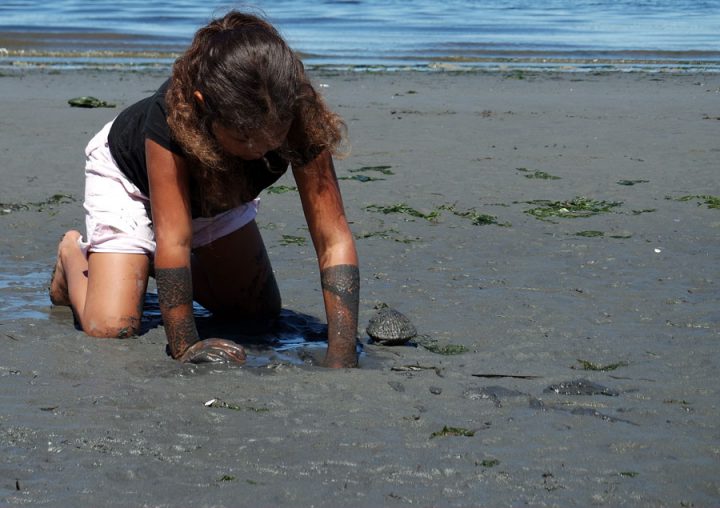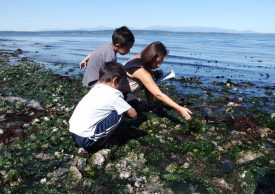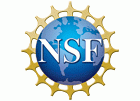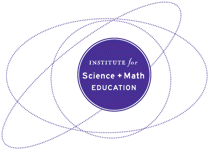Getting their hands dirty: Engaging learners in authentic science practices outside the classroom

- Teachers should provide opportunities for students to explore and understand the natural world outside of the classroom through scaffolded and emergent investigations. That science learning outdoors should be connected to learning in the classroom if possible.
- District Staff & PD Providers should encourage and model the learning opportunities of outdoor experiences.
- School Leaders should make resources and supports available for teachers to provide young children with outdoor science learning experiences.
What Is The Issue?
All learners benefit from outdoor science investigations. For young learners, research shows how outdoor play is crucial to their socio-emotional learning, cognitive development, physical health, and well-being. Despite strong evidence of the benefits of child-directed exploratory play and teacher-scaffolded learning outdoors, increasing emphasis on “kindergarten readiness” and achievement have dramatically reduced the amount of outdoor time available to youth. But, many outdoor teaching practices promote meaningful science learning.
Authors:
BY CHARLENE NOLAN - NOVEMBER 2015
Reflection Questions
- When and where do you see science? If there is a how or why question in your class, consider exploring possible answers with your students. Modeling how to do research and showing excitement about learning is a great way to introduce science.
- Do all children have equal opportunity to pose questions, engage in science practices, and offer possible theories and explanations? How might you incorporate the resources and insights that students bring from their own experiences?
Things to Consider
- The NRC Framework highlights how learners should conduct field investigations of the natural world by engaging in science practices.
- Listen closely to the questions students pose and their wonderment while outside. These can be opportunities to develop research questions that are interesting and rich with potential for science learning. Investigations can be as simple as observing a worm on the sidewalk and exploring questions related to food webs, animal behavior, habitat, and human impacts.
- Relate the concepts of science to everyday activities. A school yard or garden offers a wide variety of science learning opportunities, including healthy eating and responsibility to the natural world.
- Consider how large-motor activities get young children moving and active. For example, students can emulate animal movements and consider how animals move in particular ways (e.g., a hummingbird flaps its wings quickly while a turkey vulture soars on air currents). Or they can talk about physics as they consider the different amounts of energy involved in running up versus down a hill.
“Earth and sky, woods and fields, lakes and rivers, the mountain and the sea, are excellent schoolmasters, and teach some of us more than we can ever learn from books.”
—John Lubbok
Attending to Equity
- Efforts should be made to provide all students with extensive outdoor play and science learning experiences.
- Young boys, particularly young boys of color, are expelled from preschools at radically disproportionate rates than their peers. Teachers often cite behavioral challenges, such as high activity rates and aggressive play, as reasons for expulsion. Creating environments where large-motor skills and high-energy activities are encouraged in the service of learning may offer teachers a way to see their students’ need for movement as an asset to build upon.
Recommended Actions You Can Take
- When designing lessons, try to ensure that the activity is not separate from the context in which the initial interest was developed. If students express interest in worms in the ground, consider ways to create questions that allow them to investigate those worms—rather than telling them about science content knowledge that does relate to their initial wonderment.
- Phenomena in the world can highlight important systemic and qualitative features. Identify local phenomena that relate to specific performance expectations being targeted. Get ideas for outdoor science learning from relevant projects like The Herp Project.
- Invite experts to talk to your class. These can be scholars, local experts, or parents with relevant science experience.
ALSO SEE STEM TEACHING TOOLS
STEM Teaching Tools content copyright 2014-22 UW Institute for Science + Math Education. All rights reserved.
This site is primarily funded by the National Science Foundation (NSF) through Award #1920249 (previously through Awards #1238253 and #1854059). Opinions expressed are not those of any funding agency.
Work is licensed under a Creative Commons Attribution-ShareAlike 4.0 Unported License. Others may adapt with attribution. Funded by the National Science Foundation (NSF). Opinions expressed are not those of any funding agency.


 Email Feedback
Email Feedback



